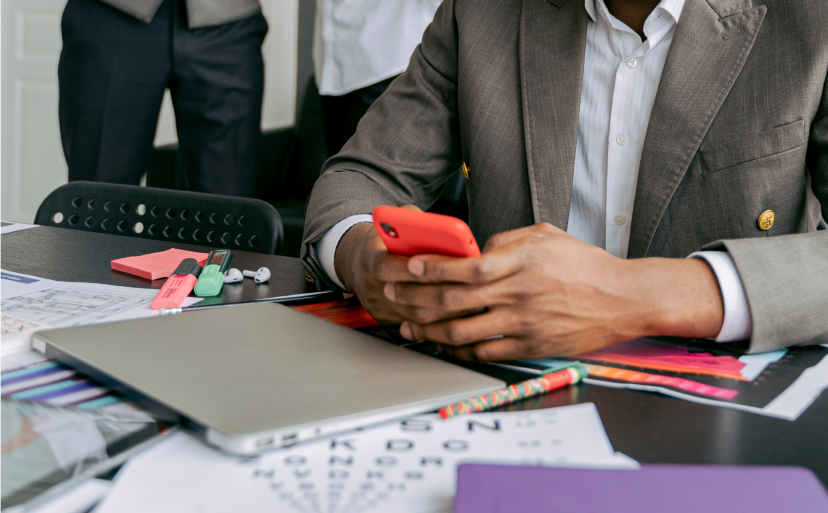Buy Now, Pay Later alternatives for gadget purchases in Africa
We curated a list of BNPL platforms in Africa that allow shoppers to purchase smartphones and gadgets via a deferred payment plan.

Amidst the continued tech advancement in Africa, the high cost of devices; such as laptops and smartphones, has created a digital divide. “Africa’s persistent digital divide can be explained by socioeconomic factors, with affordability of devices and data being key inhibitors,” according to Jane Munga, an African fellow at Carnegie tech policy programme.
Over the years, African governments have rolled out schemes that will enable device financing. For instance, last year, the Kenyan government announced its plan to build “the cheapest smartphone in Africa” which will cost less than $42 (KSh 5000). For context, the average price of a good 5G-enabled phone in Kenya is around $330, out of reach for more than 80% of Kenya’s 54 million population amidst the country’s economic challenges.
Last week, Kenya’s ICT Cabinet Secretary Eliud Owalo disclosed that the first consignment of the government-backed locally assembled smartphones will be released to the market on October 30 at a retail price of $40 (Ksh6,000).
Initiatives like these the Connect Rwanda Initiative and Macye Macye by the Rwandan government in partnership with MTN Rwanda, and Bank of Kigali, are enabling Africans to purchase purchase smartphones and other gadgets via deferred payments.
As the cost of living continues to increase across the continent, Buy Now, Pay Later (BNPL) startups are increasingly playing a vital role in device financing in Africa, given the slow nature and red tape of government-funded schemes. Some of these BNPL startups include Keza Africa, CD Care, Zilla, Lipa Later and Payflex.
Keza Africa
“This is how I came into Keza Africa. My previous phone got spoilt and I needed to replace it immediately. However I did not have the financial means to get the phone I needed, and getting access to loans for smartphones was not a linear process. I solved my problem by taking a loan from my friend and repaying it monthly but I knew that this was a problem that needed to be solved institutionally,” says Aisha Husanni, co-founder and CEO of Keza Africa.
The Techstars-backed BNPL startup is powering smartphone and laptop financing by enabling people to buy brand-new and certified pre-owned gadgets on a flexible payment plan; of about six months.
The Keza Africa application form requires you to provide the following details; bank verification number (BVN), bank statement, employment details, social media accounts, a picture, an endorser and other contact details.
After 24 hours, the applicant will receive a status confirmation email. If approved, a 30% down payment and recurring payment schedule are required to enable delivery of the smartphone.
CDcare
Founded by Tobi Odukoya and Deji Farohun, CDcare is also a Techstars-backed Nigerian startup that is making it easy for Africans to own gadgets, appliances, cars and more at zero interest, through smart instalment plans.
Its KYC process requires details like a phone number, national identity number or a BVN–which is not compulsory. The applicant will also grant CDcare location access to their device to enable address verification, a valid email address and an ATM card that is connected to an account that has funds not less than ₦5000.
According to CDcare, the item will be shipped to the applicant when 50% of the instalment is paid. This means that on a two-month plan, the delivery process starts immediately, while on a six-month plan, the delivery process starts on the third month.
To avoid unnecessary cancellation of orders, CDcare charges 10% (of the paid instalment) for every refund request.
Zilla
Zilla also offers shoppers interest-free credit to buy gadgets in Nigeria, starting with an initial deposit of 25%.
To register on Zilla, you need a valid email address, BVN and employment details. “When you complete your sign-up, you will be required to apply for shopping credit. This is a quick four-step process that will enable us to determine how much we can extend to you to shop. The maximum amount customers can get in credit at the moment is ₦300,000,” reads a statement on Zilla’s website.
The platform's payback period is eight weeks.
Lipa Later
Kenyan BNPL startup, Lipa Later enables its users to purchase gadgets and pay through 12 monthly instalments. It also provides a credit limit of KSh 500,000.
Signing up on Lipa Later requires three steps; creating an account, activating a wallet, and payments which can be done in-store or online via Sky.Garden.
Payflex
Payflex is a South African BNPL platform that enables shoppers to purchase gadgets through four instalments—over six weeks—at 0% interest. For registrations, the platform requires a name, South African ID number, email, and phone number.
Payflex shoppers must be residents of South Africa, with a Visa or Mastercard debit, cheque, or credit card issued in the country.
“To take advantage of flexing the way you pay, you’ll need to meet our minimum requirements. If you weren’t approved for a flexible payment plan, then you may have a poor credit history or no history at all,” according to Payflex.
In 2021, Australian BNPL company, Zip acquired Payflex for an undisclosed amount.
Other BNPL alternatives for gadgets purchases in Africa as listed on X by Temitope Ekundayo, CEO of Printivo, include: Rayda, Credpal, MKopa, TradeDepot, PaywithSpecta, Altmall, Justfones, Jumiapay, Parktel, Slot, OandO gadgets, Slickmobile, Oyato, Easybuy, and Klarna.







Comments ()